ARTICLE AD BOX
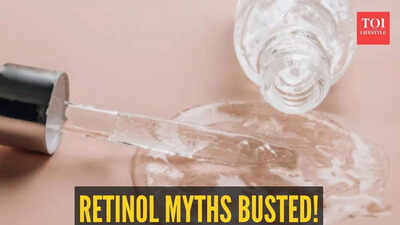
On World Retinol Day, experts debunk common myths surrounding this potent skincare ingredient. Dermatologists clarify that retinol is beneficial for all ages, not just mature skin, and can be safely used by those with sensitive skin. They emphasize consistent sunscreen use during summer and highlight that results take time, urging a 'go low, go slow' approach for optimal skin rejuvenation.
It’s World Retinol Day, and there’s no better time to clear up the confusion around one of skincare’s most powerful yet misunderstood ingredients, retinol.Hailed as the “gold standard” of anti-ageing skincare, retinol has been backed by decades of dermatological research for its ability to smooth fine lines, fade pigmentation, and renew dull skin.
Yet, despite its stellar reputation, myths about this ingredient continue to thrive, from claims that it causes peeling or sun sensitivity, to fears that it’s only meant for mature skin.To set the record straight, we spoke to two leading dermatologists, Dr Gagan Raina, Cosmetologist and Aesthetic Medicine Specialist at Arisia Skin Clinic, and Dr Bindu Sthalekar, Celebrity Dermatologist, Cosmetologist, and Trichologist, and Founder of Skin Smart Solutions.
Together, they bust the biggest retinol myths that need to be retired, for good.
Myth 1: Retinol is only for wrinkles or ageing skin
Retinol has long been associated with mature skin and anti-ageing routines, but that’s an outdated belief.
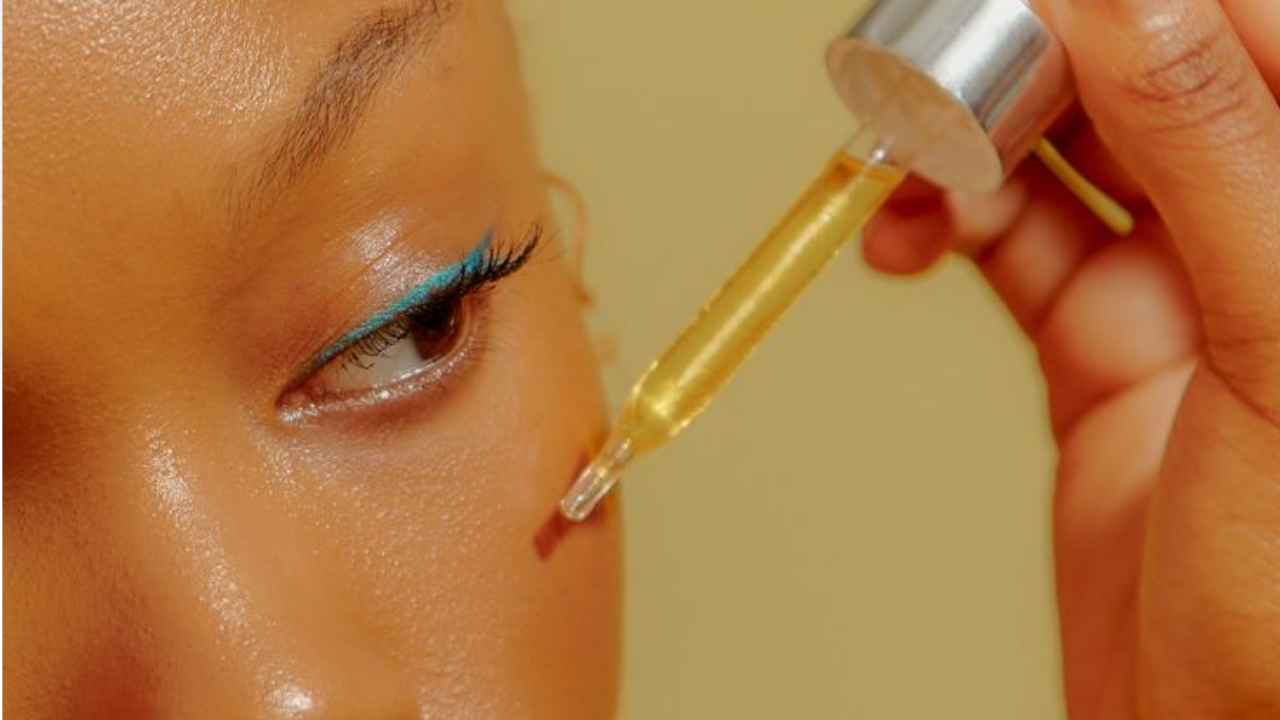
It is impossible to permanently reduce the size of your pores, but you can make them look smaller by applying a topical retinoid overnight. Retinol is a form of vitamin A that increases skin cell turnover and improves the overall thickness of the skin. This will make your skin pores look small and make it hard for your skin to purge oily plugs from the pores. Always start with a pea-sized amount of retinol and blend it with a moisturiser first.(Image Credits: Pinterest)
“Retinol is one of the most evidence-backed molecules in dermatology - yet it’s often misunderstood. The first myth? It’s only for wrinkles or ageing skin. In reality, retinol works by binding to nuclear receptors in skin cells, stimulating collagen synthesis and regulating cell turnover,” explains Dr Gagan Raina.
Simply put, retinol doesn’t just treat ageing - it helps prevent it. By encouraging collagen production and faster skin renewal, it keeps the skin firm, smooth, and radiant for longer.“Starting with a low-strength formula in your mid-twenties helps balance oil production, smooth early texture irregularities, and create a collagen reserve that slows visible ageing,” she adds.So, if you thought retinol was only for those in their 40s or 50s, think again.
In your 20s or 30s, it’s your skin’s best insurance policy against future fine lines.
Myth 2: Sensitive skin can’t tolerate retinol
The idea that sensitive skin and retinol can never coexist is one of the biggest misconceptions. Yes, retinol can cause mild dryness or flaking initially - but that doesn’t mean it’s off-limits.“With stabilised formulations and proper buffering using ceramides or hyaluronic acid, even reactive skin can benefit,” says Dr Raina.Modern skincare has come a long way from the harsh formulations of the past. Today’s retinol products are designed to release the active ingredient gradually, reducing irritation while maintaining efficacy.To make retinol work for sensitive skin:Start with a low concentration (0.2–0.3%).Use it only twice a week at first.Always layer it with a hydrating, barrier-repairing moisturiser.With patience and care, even sensitive skin types can enjoy the glow-boosting benefits of this hero molecule.
Myth 3: You can’t use retinol in summer
Another myth that refuses to die: that retinol and sunshine don’t mix. While retinol can increase photosensitivity, dermatologists agree it can absolutely be used in summer - as long as you wear sunscreen.
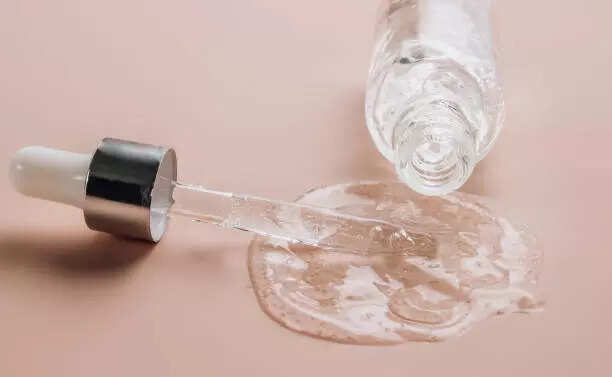
Retinol is part of a family of chemical compounds called retinoids. These are derived from or related to vitamin A, a nutrient essential for healthy skin, vision and immune function.All retinoids work because enzymes in our skin convert them into their “active” form, retinoic acid.You can buy retinol in creams and other topical products over the counter.These are often promoted as “anti-ageing” because retinol can help reduce the appearance of fine lines, wrinkles, and even out skin tone (for example, sun spots or acne scars).It also has an exfoliating effect, meaning it can help unclog pores.Stronger retinoid treatments that target acne will require a prescription because they contain retinoic acid, which is regulated as a drug in the US, European Union, the UK and Australia.
“It’s also untrue that retinol must be avoided in summer or that it permanently peels skin,” clarifies Dr Raina. “Retinol actually thickens the dermis over time, improving resilience. You just need consistent SPF and hydration.”So, no - retinol doesn’t “thin your skin.” In fact, it strengthens the deeper layer (the dermis), which improves elasticity and firmness.The rule of thumb: use your retinol at night, and make SPF 50 your best friend during the day.
Myth 4: Retinol gives overnight results
In the age of quick fixes, it’s easy to expect instant transformations. But retinol is more like a marathon than a sprint.“One of the biggest myths about retinol is that it’s too harsh or only for ageing skin - neither is true.
Retinol, when introduced correctly, benefits almost every skin type by improving cell turnover, reducing acne, and evening tone,” says Dr Bindu Sthalekar, Founder and Medical Director of Skin Smart Solutions.“The key is not the strength, but the strategy. Start slow, use it 2–3 nights a week, and buffer it with moisturiser to reduce irritation. It’s also false that more retinol means faster results; overuse actually damages the skin barrier and causes sensitivity,” she explains.The truth is that retinol works deep within the skin - stimulating collagen and regulating how new cells form. That process takes time. “Retinol isn’t a ‘quick fix’; it’s a long-term commitment that trains your skin to renew itself better. When used with hydrating ingredients like niacinamide or hyaluronic acid, it delivers visible results without compromising barrier health,” adds Dr Sthalekar.Her golden rule? “Go low, go slow, and always protect with SPF.”
Myth 5: Retinol makes your skin peel off permanently
The dreaded “retinol purge” that initial phase where skin feels a little flaky or dry - often scares people off. But dermatologists assure it’s temporary.
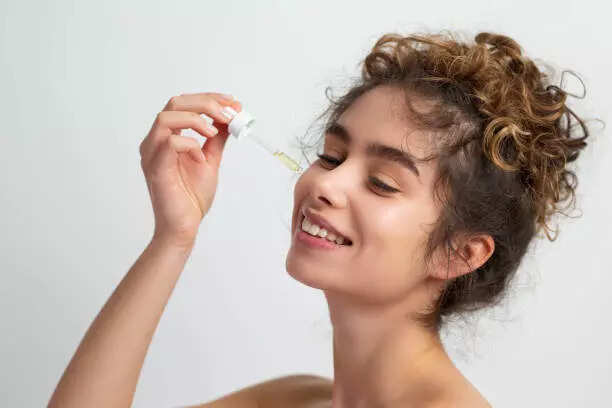
One of the most common claims about retinol is that it helps to reduce visible signs of ageing.How does this work?With age, the skin’s barrier becomes weaker, making it more prone to dryness, injury and irritation.Retinol can help counteract this natural thinning by stimulating the proliferation of keratinocytes – cells that form the outer skin layer and protect against damage and water loss.Retinol also stimulates the production of collagen (a key protein that creates a scaffolding that keeps skin firm and elastic) and fibroblasts (cells that produce collagen and support skin structure).It also increases how fast the skin sheds old cells and replaces them with new ones.Over time, these processes help reduce fine lines, fade dark spots, and even out skin tone. It can also make skin appear clearer.While effective, this doesn’t happen overnight.You may have also heard about a “retinol purge” – a temporary flare of acne when you first start using topical retinoids.Studies have found the skin may become irritated and acne temporarily worsen in some cases. But more research needs to be done to understand this link.
During the early weeks, your skin is adjusting to increased cell turnover. Mild peeling or tightness is normal and subsides as the skin barrier adapts. Far from thinning your skin, retinol actually thickens the dermis - the layer responsible for firmness.As Dr Raina puts it, “Used intelligently, retinol isn’t a seasonal trend or harsh active - it’s a cellular modulator that reprograms your skin to behave youthfully.
Think of it not as an anti-ageing shortcut, but as a long-term investment in smoother, stronger, and biologically younger skin.”
Myth 6: Retinol can’t be combined with other actives
The “don’t mix actives” rule has some truth - but it’s more about timing and formulation than complete avoidance.You don’t need to fear pairing retinol with other powerful ingredients; you just need to be strategic. For instance, use vitamin C in the morning to protect against UV damage and brighten the complexion, and retinol at night to repair and renew.
Shahid Kapoor's wife Mira Rajput's shocking transformation will leave you stunned!
Gentle exfoliating acids like lactic or mandelic acid can be used on alternate nights to boost glow, while barrier-loving hydrators like ceramides, peptides, and niacinamide complement retinol beautifully.If you’re new to actives, keep your routine simple and focus on building tolerance first.
Myth 7: Retinol isn’t suitable for acne-prone skin
This one couldn’t be further from the truth. Retinol is one of the most effective ingredients for managing acne. It unclogs pores, reduces oil production, and fades post-acne marks - all while improving skin texture.As Dr Sthalekar notes, “Retinol, when introduced correctly, benefits almost every skin type by improving cell turnover, reducing acne, and evening tone.”
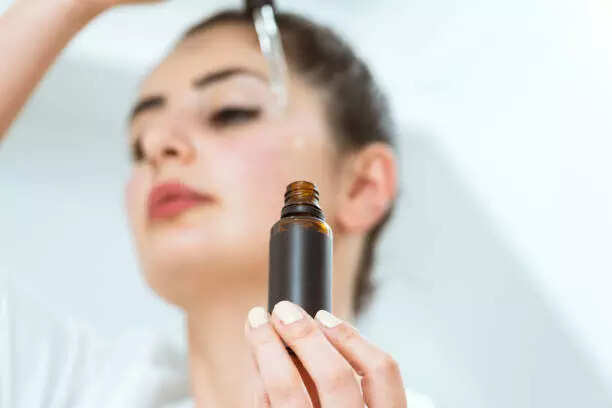
Retinol skincare products suddenly seem to be everywhere, promising clear, radiant and “youthful” skin.But what’s the science behind these claims? And are there any risks?You may have also heard retinol can increase your risk of sunburn, and even make acne worse.For some people, retinol may help reduce the appearance of fine lines. But it won’t be suitable for everyone. Here’s what you need to know. Experts - Laurence Orlando, Senior Lecturer, Faculty of Pharmacy and Pharmaceutical Science, Zanfina Ademi, Professor of Health Economics and Outcomes Research and Lead Health Economist, Centre for Medicine Use and Safety and Zoe Porter, Senior Teaching Fellow, Faculty of Pharmacy and Pharmaceutical Sciences, take us through what makes retinol so popular and the risks involved around its usage.
Dermatologists often prescribe stronger retinoids for acne treatment, but even over-the-counter retinol can significantly reduce breakouts when used consistently.The key is balance - pair your retinol with non-comedogenic moisturisers and sunscreen, and your skin will stay clear and healthy.
Myth 8: Natural alternatives like bakuchiol are better
Bakuchiol - the buzzy “plant-based retinol alternative” is a wonderful option for extremely sensitive skin. But dermatologists agree that it doesn’t fully replicate retinol’s molecular action.Bakuchiol may mimic some of retinol’s benefits (like smoothing texture and boosting radiance), but it doesn’t stimulate collagen as powerfully or as deeply. That said, it can be a good “gateway ingredient” for beginners who want similar results with less irritation.For those who can tolerate it, retinol remains the most research-backed molecule for long-term skin rejuvenation.
Myth 9: Retinol can’t be used around the eyes
The skin around your eyes is delicate, yes but not off-limits. Many ophthalmologist-tested eye creams now include micro-encapsulated retinol in tiny doses to target fine lines, crepiness, and dark circles safely.Use a small amount, dab it gently with your ring finger, and avoid the lash line. Over time, you’ll notice smoother, firmer skin around your eyes without irritation.
How to start your retinol journey
If you’re introducing retinol for the first time, follow this dermatologist-approved beginner plan:Start slow - Use a low-strength (0.2–0.3%) retinol two nights a week.Buffer - Apply moisturiser before and after retinol for added comfort.Hydrate - Keep your barrier strong with hyaluronic acid or ceramides.
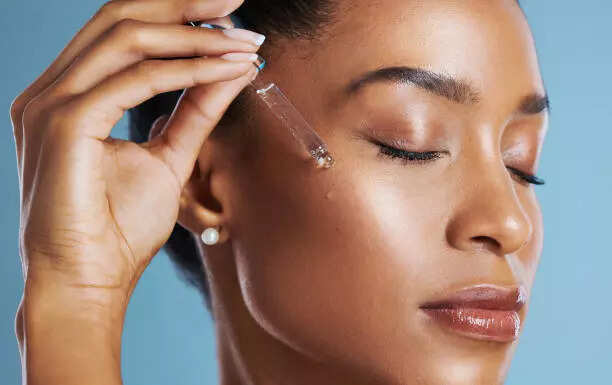
At typical skincare concentrations (0.1-0.3%), side-effects tend to be mild.Most people who experience irritation (such as redness, dryness, or peeling) when starting retinol are able to build tolerance over time. This process is often called “retinisation”.However, retinol increases the skin’s sensitivity to UV radiation (known as photosensitivity). This heightened reactivity can lead to sunburn, irritation, and an increased risk of hyperpigmentation (spots or patches of darker colour).For this reason, daily use of broad-spectrum sunscreen (SPF30 or higher) is strongly recommended while using retinol products.
Protect - Never skip sunscreen during the day.Be patient - Visible results appear after 8–12 weeks.Retinol isn’t just another skincare trend, it’s a scientifically proven molecule that helps your skin look and act younger.
When used wisely and consistently, it transforms the skin’s health, resilience, and glow from within.As Dr Gagan Raina and Dr Bindu Sthalekar emphasise, it’s not about going strong, it’s about going smart. With the right approach, retinol becomes less of an intimidating active and more of a trusted ally in your skincare journey.This World Retinol Day, let’s retire the myths and let science lead the way to stronger, smoother, and more radiant skin.

 4 days ago
8
4 days ago
8








 English (US) ·
English (US) ·